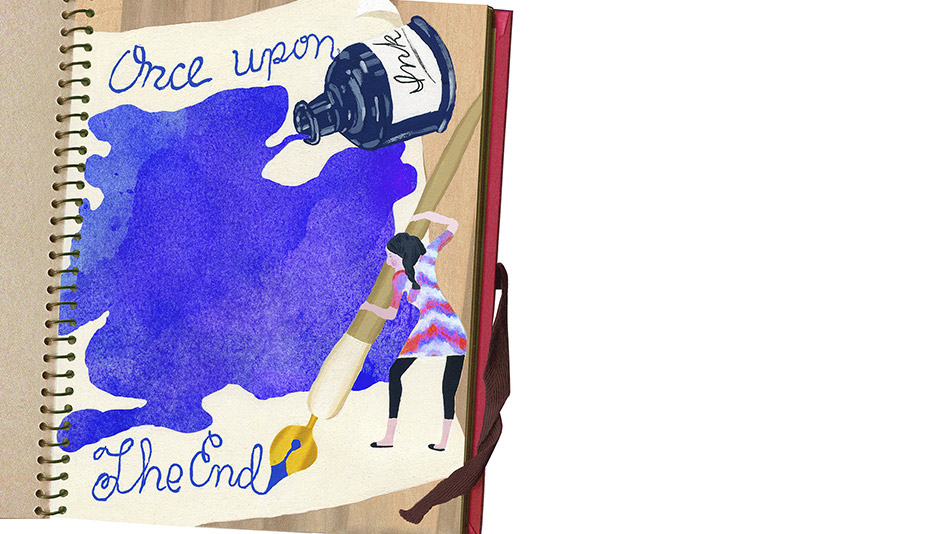The Easiest Way to Find Out Who You Are, Were and Someday Want to Be
Life is short, especially when you compress it into a single magical sentence. Plus, we invite you to share your own one-sentence memoir by going to Oprah.com/1sentencestory.

Illustration: Juliette Borda
The most revealing story I've written is also the shortest. Here is "Memoir" in full: "Just once in my life—oh, when have I ever wanted anything just once in my life?"
If the short, short story is "like a short story, only more so," as one writer put it, then the one-sentence story is the defining moment, the thing that encapsulates a person, with precision and efficiency, memorably. The defining moment is about recognition, and sometimes recognition can inspire a call to action, make a case for change. or not.
A new friend told me a lot about herself when she proposed that her epitaph read SHE WOULD HAVE GOTTEN MORE DONE, BUT SHE HAD DOGS. An old friend, an improv comic, wrote the story of his show-biz career: "He started at the bottom; he aimed for the top; he ended up somewhere below in-between." Succinct, aphoristic, the one-sentence story that illuminates a life can be a punch line, an epitaph, a proverb or an actual memoir (the standout for me from the collection Not Quite What I Was Planning: Six-Word Memoirs: "Found true love, married someone else").
I also see stand-alone life stories within longer works. From the novel Lights Out in the Reptile House, by Jim Shepard: "It was possible to have kinds of homecoming without home." And from the Mary Robison story "Pretty Ice": "My father had been dead fourteen years, but I resented my mother's buying a car in which he wouldn't have fitted."
The sentence is the basic unit of construction in a story, and when that sentence is the whole story, the story of your life, you can find clarity, bite and a spotlight turned on the person you are, or were, or someday want to be. As David Mamet once wrote, "Omission is a form of creation." So much is said in these sentences, amplified because the authors left out all the right things.
Your turn! Share your own one-sentence tale on Twitter or Instagram; see Oprah.com/1sentencestory for more.



